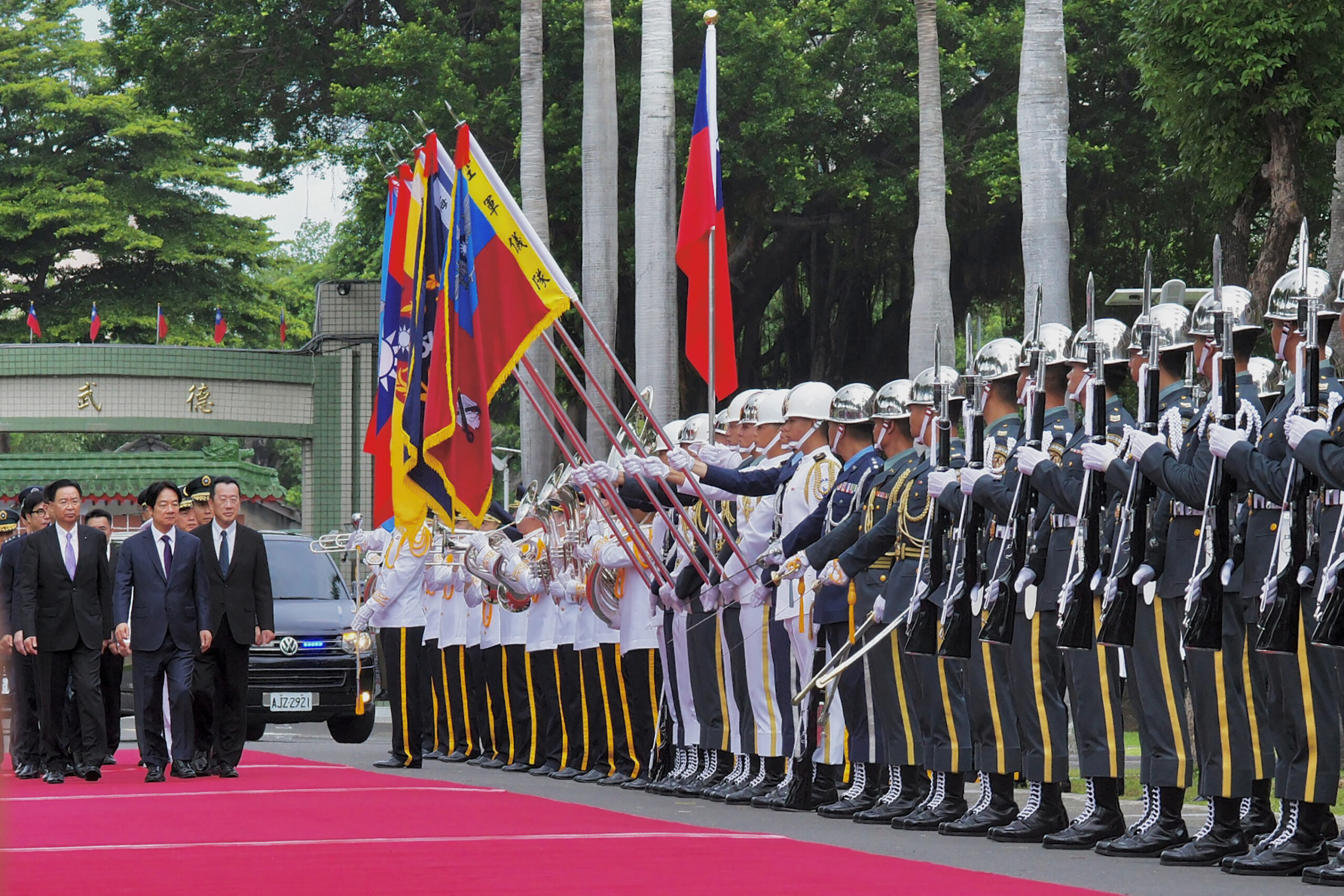
Taiwan President Lai Ching-te (2nd L) inspects an honor guard at the Republic of China (ROC) Military Academy during the academy’s 100th anniversary ceremony in Kaohsiung on June 16, 2024. Agence France-Presse
KAOHSIUNG — President Lai Ching-te warned cadets of Taiwan’s military academy on Sunday that their biggest challenge was “the strong rise of China”, which he said regards the “elimination” of the self-ruled island as a national cause.
China claims democratic Taiwan as part of its territory, and Chinese leaders have escalated their rhetoric in recent years to suggest “unification” is an “inevitability”.
Beijing has also stepped up military pressures, most recently launching war games that encircled the island with warplanes and naval vessels days after Lai was sworn into office last month.
READ: Taiwan president vows to remember China’s Tiananmen crackdown
Speaking Sunday at the centennial anniversary of the founding of Taiwan’s Whampoa military academy, Lai said teachers and cadets must recognise “the challenges and missions of the new era”.
“The greatest challenge is to face the strong rise of China, which has been destroying the status quo in the Taiwan Strait,” he said.
“(It) aims for the annexation and the elimination of the Republic of China for its cause of great national revival,” Lai said, referring to Taiwan by its official name.
READ: Taiwan’s president says wants to work with China
“The highest mission is to bravely take up the heavy responsibility and grand task of protecting Taiwan, and safeguarding the peace and stability in the Taiwan Strait.”
The academy was founded in 1924 in Guangzhou, southern China. It moved to Kaohsiung, in southern Taiwan, after the defeated Nationalists fled to the island in 1949.
Lai is regarded as a “dangerous separatist” by China, which said before the launch of war games in May that his inaugural speech was akin to a “confession of Taiwan independence”.
Lai had vowed in his speech to defend Taiwan’s democracy and freedom, while also calling for dialogue with China — which has been severed since 2016.
Like his predecessor Tsai Ing-wen, Lai maintains that Taiwan does not need to have a formal declaration of independence — a redline for China — as it is “already independent”.